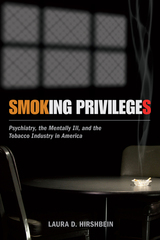2 books about Mentally Ill

Refusing Care
Forced Treatment and the Rights of the Mentally Ill
Elyn R. Saks
University of Chicago Press, 2002
It has been said that how a society treats its least well-off members speaks volumes about its humanity. If so, our treatment of the mentally ill suggests that American society is inhumane: swinging between overintervention and utter neglect, we sometimes force extreme treatments on those who do not want them, and at other times discharge mentally ill patients who do want treatment without providing adequate resources for their care in the community.
Focusing on overinterventionist approaches, Refusing Care explores when, if ever, the mentally ill should be treated against their will. Basing her analysis on case and empirical studies, Elyn R. Saks explores dilemmas raised by forced treatment in three contexts—civil commitment (forced hospitalization for noncriminals), medication, and seclusion and restraints. Saks argues that the best way to solve each of these dilemmas is, paradoxically, to be both more protective of individual autonomy and more paternalistic than current law calls for. For instance, while Saks advocates relaxing the standards for first commitment after a psychotic episode, she also would prohibit extreme mechanical restraints (such as tying someone spread-eagled to a bed). Finally, because of the often extreme prejudice against the mentally ill in American society, Saks proposes standards that, as much as possible, should apply equally to non-mentally ill and mentally ill people alike.
Mental health professionals, lawyers, disability rights activists, and anyone who wants to learn more about the way the mentally ill are treated—and ought to be treated—in the United States should read Refusing Care.
Focusing on overinterventionist approaches, Refusing Care explores when, if ever, the mentally ill should be treated against their will. Basing her analysis on case and empirical studies, Elyn R. Saks explores dilemmas raised by forced treatment in three contexts—civil commitment (forced hospitalization for noncriminals), medication, and seclusion and restraints. Saks argues that the best way to solve each of these dilemmas is, paradoxically, to be both more protective of individual autonomy and more paternalistic than current law calls for. For instance, while Saks advocates relaxing the standards for first commitment after a psychotic episode, she also would prohibit extreme mechanical restraints (such as tying someone spread-eagled to a bed). Finally, because of the often extreme prejudice against the mentally ill in American society, Saks proposes standards that, as much as possible, should apply equally to non-mentally ill and mentally ill people alike.
Mental health professionals, lawyers, disability rights activists, and anyone who wants to learn more about the way the mentally ill are treated—and ought to be treated—in the United States should read Refusing Care.
[more]

Smoking Privileges
Psychiatry, the Mentally Ill, and the Tobacco Industry in America
Hirshbein, Laura D
Rutgers University Press, 2015
Current public health literature suggests that the mentally ill may represent as much as half of the smokers in America. In Smoking Privileges, Laura D. Hirshbein highlights the complex problem of mentally ill smokers, placing it in the context of changes in psychiatry, in the tobacco and pharmaceutical industries, and in the experience of mental illness over the last century.
Hirshbein, a medical historian and clinical psychiatrist, first shows how cigarettes functioned in the old system of psychiatric care, revealing that mental health providers long ago noted the important role of cigarettes within treatment settings and the strong attachment of many mentally ill individuals to their cigarettes. Hirshbein also relates how, as the sale of cigarettes dwindled, the tobacco industry quietly researched alternative markets, including those who smoked for psychological reasons, ultimately discovering connections between mental states and smoking, and the addictive properties of nicotine. However, Smoking Privileges warns that to see smoking among the mentally ill only in terms of addiction misses how this behavior fits into the broader context of their lives. Cigarettes not only helped structure their relationships with other people, but also have been important objects of attachment. Indeed, even after psychiatric hospitals belatedly instituted smoking bans in the late twentieth century, smoking remained an integral part of life for many seriously ill patients, with implications not only for public health but for the ongoing treatment of psychiatric disorders. Making matters worse, well-meaning tobacco-control policies have had the unintended consequence of further stigmatizing the mentally ill.
A groundbreaking look at a little-known public health problem, Smoking Privileges illuminates the intersection of smoking and mental illness, and offers a new perspective on public policy regarding cigarettes.
[more]
READERS
Browse our collection.
PUBLISHERS
See BiblioVault's publisher services.
STUDENT SERVICES
Files for college accessibility offices.
UChicago Accessibility Resources
home | accessibility | search | about | contact us
BiblioVault ® 2001 - 2024
The University of Chicago Press









